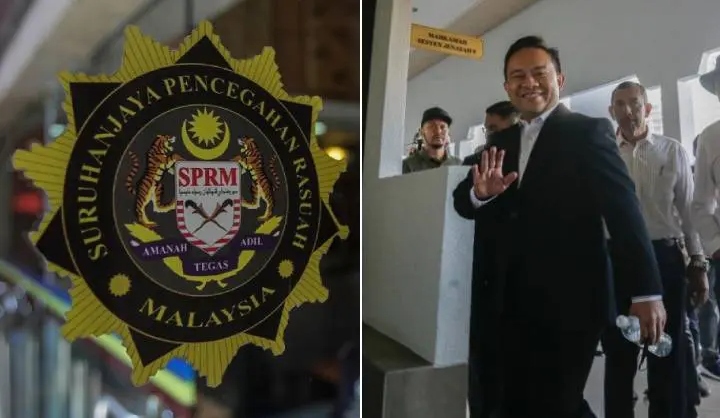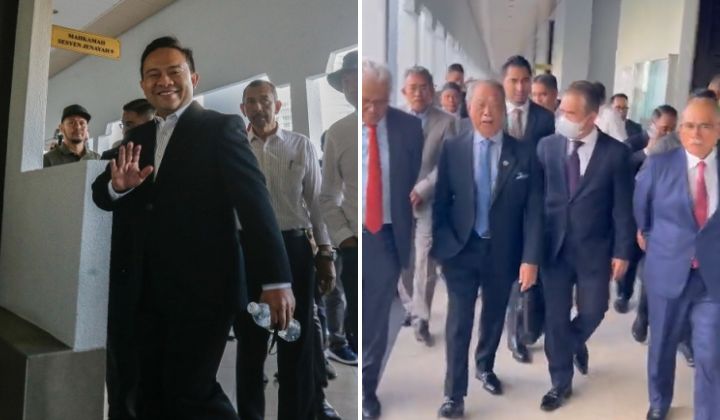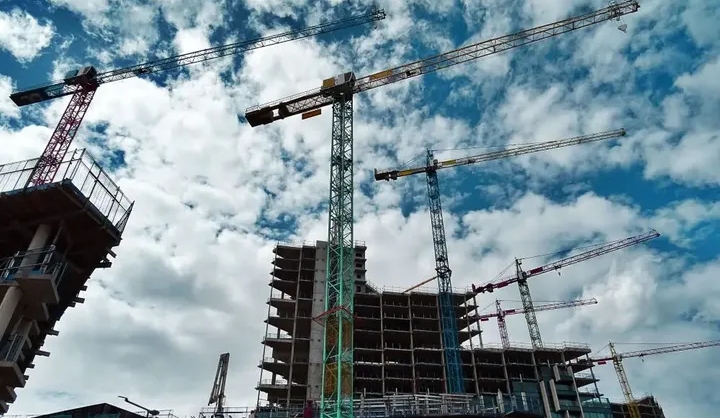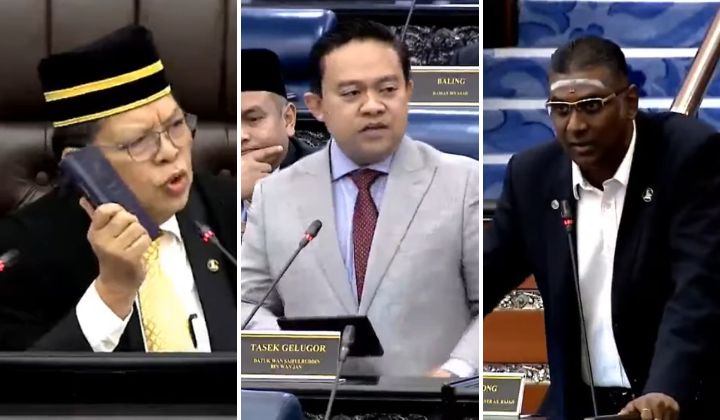TLDR: Jana Wibawa – What Is It And What’s All This Corruption Controversy Around It?
Jana Wibawa is an initiative implemented by the Malaysian Government under the leadership of the former Prime Minister, Tan Sri Muhyiddin Yassin during the COVID-19 pandemic.

Subscribe to our Telegram channel for the latest stories and updates.
As you all know, Bersatu’s Head of Information Datuk Wan Saiful Wan Jan was charged yesterday (February 21) in the Kuala Lumpur Sessions Court with two charges of corruption in relation to the Jana Wibawa initiative.
He pleaded not guilty as the charges were read before Judge Azura Alwi.
The Tasik Gelugor Member of Parliament is alleged to have asked for and received a bribe of RM6.9 million in relation to a Jana Wibawa initiative which is the Central Spine Road (CSR) project from Sertik to the East Coast Highway Interchange worth RM232 million.
Besides the former PTPTN Chairman, the Deputy Head of Bersatu Segambut Division, Adam Radlan Adam Muhammad also faced the same charges in a separate court.

Adam Radlan is accused of asking for cash bribes amounting to between 3.5% and 7% of the project value obtained by MIE Infrastructure & Energy Sdn Bhd through its managing director, Mat Jusoh Mamat.
He was also accused of receiving cash bribes amounting to RM500,000 for his ‘efforts’ to help the company obtain the Letter Of Acceptance for the road construction of Jalan Sungai Adam to Kampung Banat, Perlis through direct negotiations, which is worth RM47.8 million.
READ MORE: Bersatu’s Wan Saiful And Adam Radlan To Be Charged Over Jana Wibawa
What is Jana Wibawa?
With all the big charges going on around it, one big question still remains, what exactly is this Jana Wibawa Project?
In short, Jana Wibawa stands for the “Program Jana Ekonomi Pemerkasaan Kontraktor Bumiputera Berwibawa”, which is an initiative implemented by the Malaysian Government under the leadership of the former Prime Minister, Tan Sri Muhyddin Yassin during the COVID-19 pandemic.
This project is a continuation of the “Program Pembangunan Kontraktor Binaan Bumiputera Berwibawa” which started in 1993.
This program is also dedicated to the development of Bumiputera/Malay contractors where the members of the Board of Directors, shareholders and others are 100% Bumiputera.

Approved by the Cabinet in 2020
The implementation of this initiative was approved by the Cabinet during the era of the Prime Minister at the time, Tan Sri Muhyiddin Yassin, on 13 November 2020 with the aim of speeding up the implementation of government projects as well as increasing the capacity of Bumiputera contractors in the construction industry.
In addition, it is also part of the government’s efforts to achieve the target of strengthening the Bumiputera Economic Community (BEC).
Evaluation of eligible companies is supposed to go through two phases
In terms of evaluation, there are two qualifying phases that construction companies must go through before they are allowed to participate in this program.
The First Phase Assessment is at the level of the Malaysian Ministry of Finance (MOF) while the second phase is managed by the implementing agencies involved, such as the Malaysian Public Works Department (JKR), Ministry of Rural and Regional Development (KPLB) and Department of Irrigation and Drainage (JPS).
Phase 1: MOF
For Phase 1, the Committee at the MOF level will ensure that all criteria are met by Bumiputera contractor candidates.
It is understood that the assessment carried out by MOF is based on three levels, namely:
- First Stage: The contractor company must meet the mandatory assessment requirements of Bumiputera status, be registered as a Grade G7 contractor with CIDB in a specialized field, and have a SCORE rating by CIDB of at least three stars.
- Second Stage: Ensure that the company involved has the financial capabilities such as having a minimum liquid capital set according to the value of the project and having project financing facilities.
- Third Stage: Ensuring that the contractor has the technical ability to implement the project by taking into account current work performance, past work experience and not having a record of sick projects.
Phase 2: Implementing Agency
The list of shortlisted contractor companies will be submitted to the implementing agency for the purpose of inviting them to submit project bids.
The companies involved will then be invited to compete in submitting the best offer before it is considered by the Approving Authority (PBM) that manages the government’s procurements.
If found eligible and meet the criteria, the company will be appointed by the implementing agency.
Direct negotiation, known as the “open secret”
However, despite all these assessments, several parties including the President of the Malaysian Malay Contractors Association (PKMM), Datuk Seri Mohamed Fadzill Hassan claimed that the Jana Wibawa Project was awarded through direct negotiation tenders and selected tenders which were awarded to contractors friendly to certain parties.
In fact, he claimed that the matter was an “open secret” already known to Malay and Bumiputera contractors, including PKMM members themselves.
In addition, what causes the dispute is when there is a project given to a company that is “friendly” with a certain party even though they have no experience and expertise.
We are not jealous of those who get the Jana Wibawa project, but the awarding of the project needs to be fair in terms of selection based on ability, experience and professionalism, and not who is good with the Prime Minister (at that time) or the minister (at that time) who awarded the project.
Datuk Seri Mohamed Fadzill Hassan, President of the Malaysian Malay Contractors Association (PKMM)
Some even claim that the list of Letters of Acceptance (SST) issued through the Jawa Wibawa project involves family members of the main leaders of certain political parties.
Previously, Deputy Prime Minister Datuk Seri Ahmad Zahid Hamidi informed that the MOF had ordered the postponement of the Jana Wibawa project so that a re-examination could be carried out as to whether the procurement procedures were in accordance with the rules set by the treasury.
As reported by Awani, Zahid, who is also the Minister of Rural and Regional Development, said the postponement of the project worth RM5.7 billion was made because there was an element of the procurement method through selected tenders or direct negotiations.
For the record, our former Prime Minister, Tan Sri Muhyiddin Yassin is also among the suspects in the Jana Wibawa Project investigation.
The matter was confirmed by a MACC source to the media on Sunday, February 19.
Additionally, investigations are also being carried out against several individuals including the former Minister of Finance, Tengku Datuk Seri Zafrul Tengku Abdul Aziz.
But Muhyiddin, who is also the Chairman of Bersatu, claimed that his party was a victim of “selective prosecution” after Wan Saiful was charged on Tuesday morning.
READ MORE: Terpalit Kontroversi Rasuah, Ini Ringkasan Tentang Jana Wibawa Yang Patut Anda Tahu
Share your thoughts with us on TRP’s Facebook, Twitter, and Instagram.





